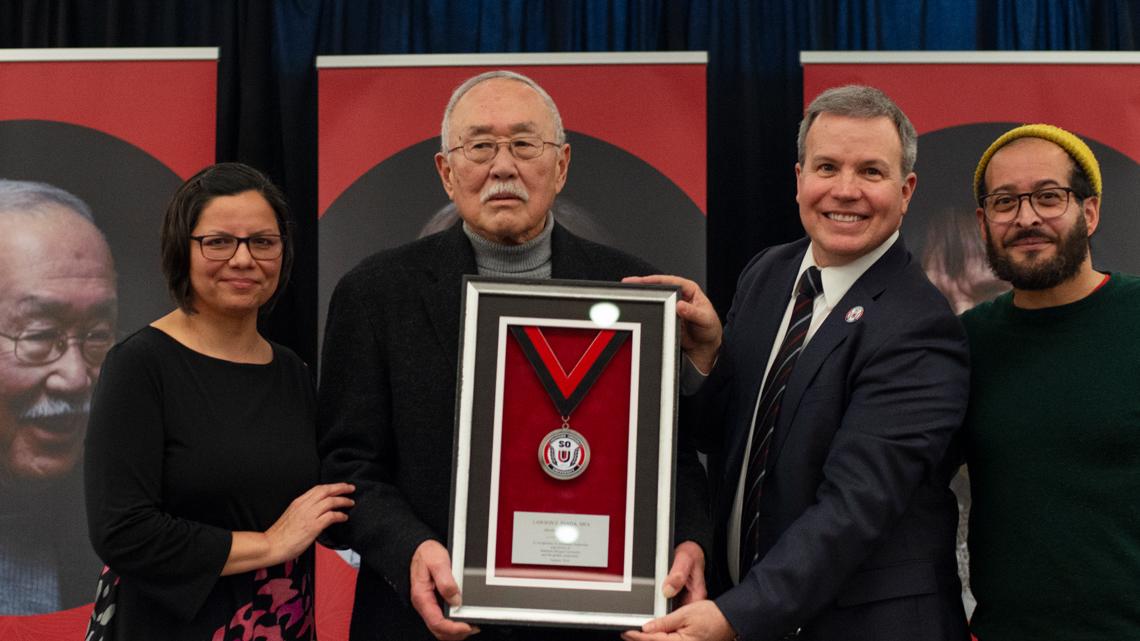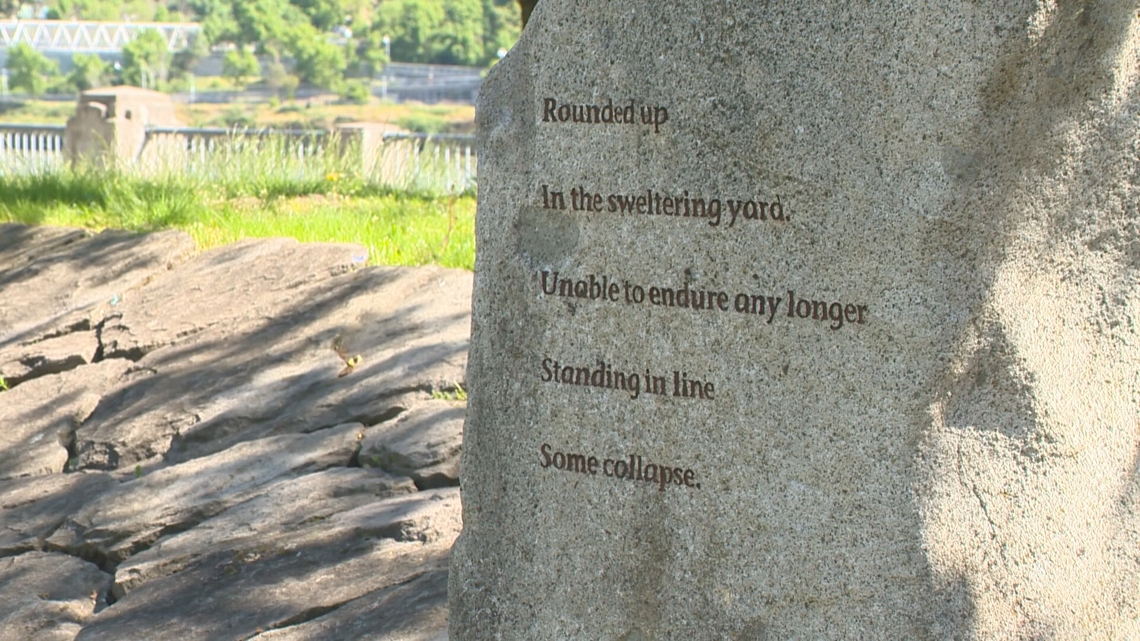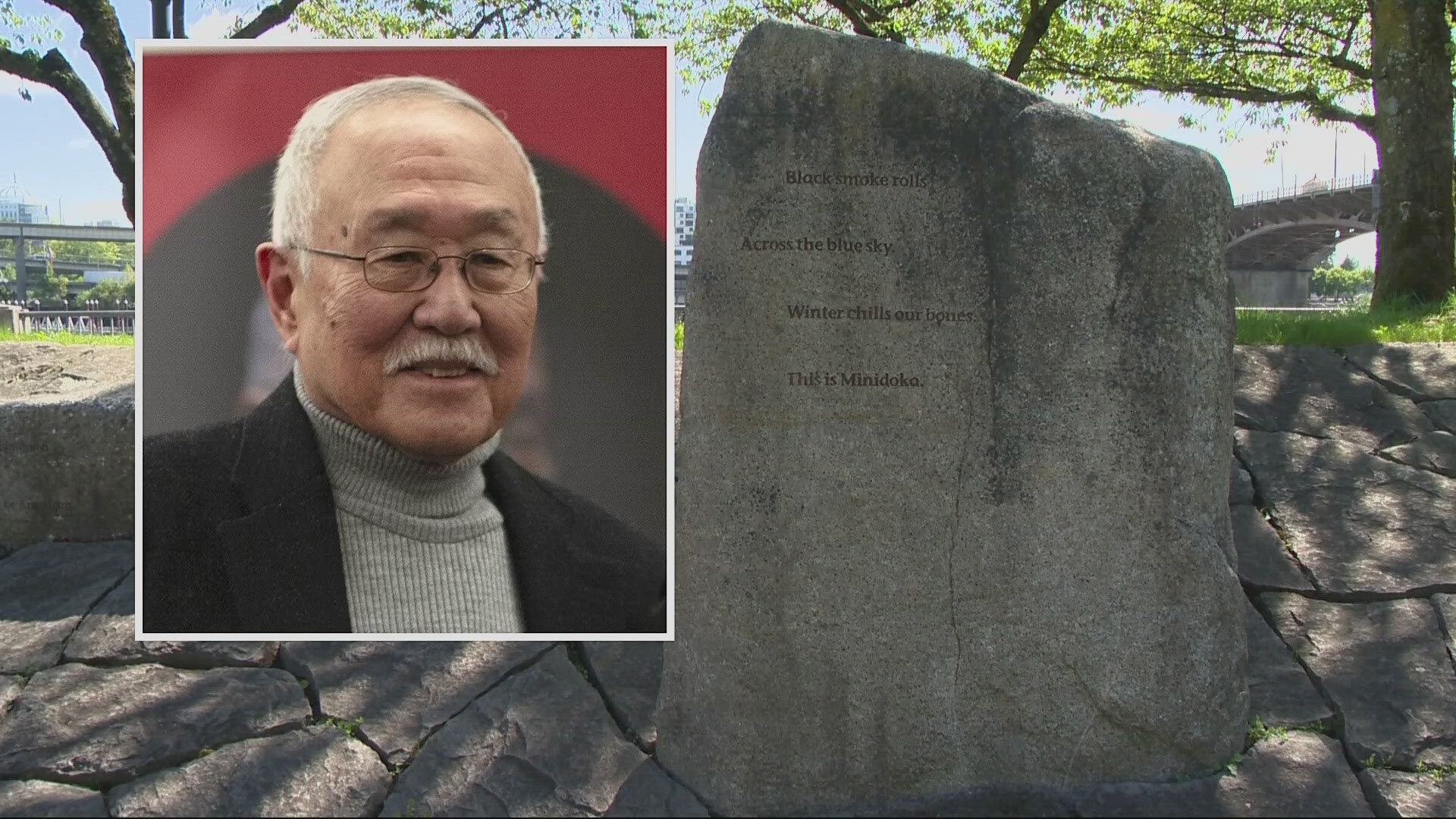PORTLAND, Ore. — An Oregon poet laureate, a longtime university professor, and a Japanese American who survived incarceration during World War II. That is just the start of describing Lawson Fusao Inada.
In January, Inada received Southern Oregon University's highest award, the SOU president's medal. Inada, now in his mid-80s, is a world-renowned poet who taught at the university in Ashland from 1966 to 2002. He lives in southern Oregon with his wife, Janet, and he continues to have a connection with the university. He currently serves as Professor Emeritus of Writing.


Inada is a third-generation Japanese American. He was born in Fresno, California but has spent most of his adult life in Oregon.
The betrayal he felt as a child when he and his family were incarcerated during World War II plays into his poetry in a big way. Some of Inada’s stark words are immortalized in granite at the Japanese American Historical Plaza on Portland's waterfront. One such etching reads:
"Rounded up
In the sweltering yard.
Unable to endure any longer
Standing in line
Some collapse."


Inada has earned numerous awards, and in 2006, former Gov. Ted Kulongoski appointed him as Oregon's fifth poet laureate. That appointment led the poet to travel the state promoting poetry as a communication and art form.
As a professor and a poet, Inada has influenced others for decades, including newer generations of Japanese Americans.
Kurt Ikeda is with the National Park Service at Minidoka National Historic Site in southern Idaho. Minidoka was one site of many that imprisoned people of Japanese heritage during World War II.
Ikeda, a poet himself, once played a character based on Inada in a play. He was moved by Inada's recounting of both the difficult and the joyous times of life.
“His writing that has such a deep heart and soul to it. I think about how this work will forever inspire young Japanese Americans like myself even, and remind us, ultimately, 'daijoubu,' it will be ok,” Ikeda said.
KGW's Breaking Barriers series features Oregonians making a difference in the world of sports, arts, government, business and more. You'll see stories throughout May featuring stories for Asian American Native Hawaiian Pacific Islander Heritage Month. You can watch them all here.

